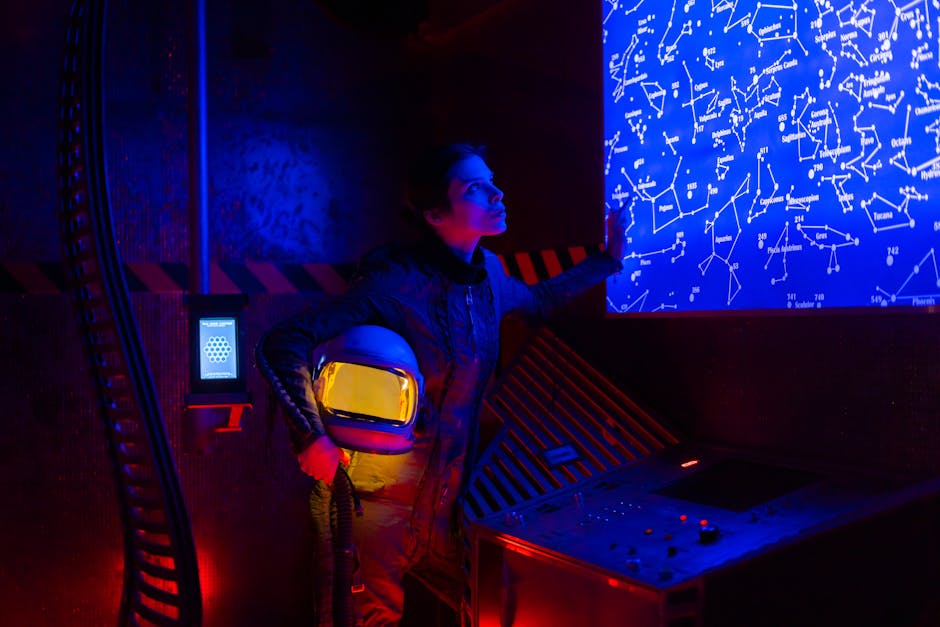In today’s fast-paced world, technology has become an essential part of our daily lives. It has revolutionized the way we work, communicate, and even entertain ourselves. As we continue to move forward in this digital age, technology and its impact on businesses can no longer be ignored.
In this blog post, we will explore the various ways technology has shaped the future and how businesses can adapt to these changes to stay ahead of the competition. From automation and artificial intelligence to data analytics and sustainability, we will delve deep into the many aspects of modern technology that are defining the future of business. So, buckle up and get ready for an exciting journey as we discover the limitless potential technology holds for businesses in the 21st century.
The impact of artificial intelligence (AI) on various industries
The impact of artificial intelligence (AI) on various industries cannot be overstated. As AI technology continues to advance, we are witnessing transformative changes that will reshape the way we work, communicate, and even live.
In the healthcare industry, AI can assist in diagnosing diseases, personalized treatments, and streamlining administrative tasks. When it comes to retail, AI-powered algorithms offer a highly personalized shopping experience, while chatbots address customer inquiries promptly. The transportation sector has also benefited from AI advancements, with the introduction of autonomous vehicles and smart traffic systems.
Looking towards the future, it is clear that AI will continue to revolutionize many aspects of our lives, increasing efficiency and reshaping industries. As we embrace these technological advances, it becomes increasingly important for businesses to adapt and adjust their strategies for a world powered by AI.
The revolution of the Internet of Things (IoT) in everyday life

The rapid and continuous growth of the Internet of Things (IoT) has revolutionized our daily lives in ways we never imagined. Seamless connectivity between everyday objects has taken convenience to new heights, providing us with smart homes, offices, and even cities.
IoT technology has the power to monitor, control, and communicate with countless devices, automating tasks and managing resources with just a few clicks on your smartphone. Whether it’s adjusting your home’s temperature, managing traffic flow, or monitoring energy usage, the IoT addresses a wide array of needs, allowing us to lead more efficient, sustainable lives.
As IoT continues to advance, businesses and consumers alike are becoming increasingly reliant on these interconnected systems. This reliance solidifies the vital role of IoT in our rapidly evolving future – a world where technology and convenience go hand-in-hand as we forge ahead into a new era of innovation.
The transformation of transportation with autonomous vehicles

The transportation industry is on the brink of a major transformation, thanks to autonomous vehicles. These self-driving cars have the potential to significantly reshape the way we move from one point to another, bringing about numerous benefits.
For instance, by reducing the need for human intervention, autonomous vehicles can reduce the number of accidents caused by human error. Additionally, they can optimize energy consumption by eliminating unnecessary acceleration and braking, thus reducing CO2 emissions.
Furthermore, these smart vehicles can communicate with each other and road infrastructure, enabling more streamlined traffic flow. The result? Shorter commute times and less congestion on our roads.
Ultimately, the incorporation of autonomous vehicles into our transportation system will not only enhance efficiency, but also improve the overall quality of life for individuals and communities alike.
The evolution of virtual and augmented reality in entertainment and education

The evolution of virtual and augmented reality (VR/AR) is an innovation that cannot be ignored in modern times. These technologies have begun to permeate various aspects of our lives, with entertainment and education being two areas witnessing a significant transformation.
In the world of entertainment, VR/AR has taken gaming to new heights, offering users an immersive experience that was once thought impossible. These advancements have also propelled the film industry, taking storytelling to a whole new level.
On the other hand, education has benefited tremendously from the incorporation of VR/AR, making the learning process engaging and interactive. Teachers can now create virtual classrooms, taking their students on virtual field trips to explore real-life scenarios and engage with complex concepts.
The applications of VR/AR in both entertainment and education continue to expand at a rapid pace, solidifying the role of technology in our future. The potential of these innovations is virtually limitless, leaving us to wonder what other ground-breaking advances lie just around the corner.
Advancements in healthcare through technology-based solutions

Technology has revolutionized various aspects and industries. One of the most significant impacts is observed in the healthcare sector. Recent advancements in healthcare technology are driving significant changes in the way care is delivered to patients.
AI-powered chatbots, for instance, are being deployed to facilitate more rapid diagnoses for patients. Virtual care is becoming increasingly accessible, making it more convenient for people to receive consultations without having to physically visit the clinic or hospital.
The use of ‘wearables’ and other digital devices has allowed for real-time monitoring of patients’ health conditions, enabling healthcare professionals to deliver personalized care and treatment plans. Cutting edge innovations in medical research, such as 3D-printed organs and nanobots, hold potential for the future of transplants and targeted drug delivery.
By embracing such technology-based solutions, healthcare providers offer more efficient, tailored, and accessible care to their patients, ensuring a bright future for medical care innovation.
The shift towards renewable energy sources and smart grids

The shift towards renewable energy sources and smart grids is more than just an environmentally conscious decision – it is the manifestation of technology’s role in shaping the future of our world. By harnessing the power of the sun, wind, and water, we can reduce our reliance on fossil fuels and create a cleaner, more sustainable energy infrastructure.
Incorporating smart grids into our energy systems further elevates our ability to adapt to the ever-changing demands of modern society. These cutting-edge networks deeply integrate technology, allowing for real-time data collection, analysis, and communication. This enables a more efficient, reliable, and secure energy supply, while reducing our carbon footprint.
The shift to renewables and smart grids highlights how technology is paving the way for a brighter, more sustainable future, with businesses and individuals alike making informed decisions about energy consumption and conservation. The potential for positive, lasting change is immense, and it’s clear that technology is at the heart of it all.
The future of work: remote work, gig economy, and workforce automation

As we embark on the future of work, technology plays an increasingly significant role in the way businesses operate and teams collaborate. Remote work has gained massive popularity in recent years, with numerous employees and companies embracing the flexibility and convenience it offers. With advancements in video conferencing and project management tools, working from home has become seamless and efficient.
Parallelly, the gig economy is thriving as more professionals opt for freelance and contractual roles. Online platforms have made it easier than ever to connect with clients and work on demand, catering to individual preferences.
Another major shift is in the form of workforce automation – the integration of artificial intelligence, machine learning, and robotic process automation into the workplace is streamlining operations and empowering businesses to focus on innovation and creativity. This tech-driven future shines a light on new possibilities and unprecedented growth potential for companies worldwide.
The role of technology in addressing global challenges such as climate change

As our world continues to face the ever-daunting challenge of climate change, the role of technology has become more significant than ever before. From renewable energy sources like solar power and electric vehicles to carbon capture technologies, we have an array of innovations at our disposal to tackle this global threat.
With the rapid advancements in AI and machine learning, we can now better predict the impacts of climate change and implement data-driven solutions. Moreover, smart agriculture is revolutionizing the way we produce food, reducing carbon emissions and water waste while increasing crop yields sustainably.
As society collectively embraces these technologies and the inevitable digital transformation, we must also ensure that the benefits are spread equitably. In a world where humanity’s survival is at stake, technology holds the keys to a greener and more resilient future.









